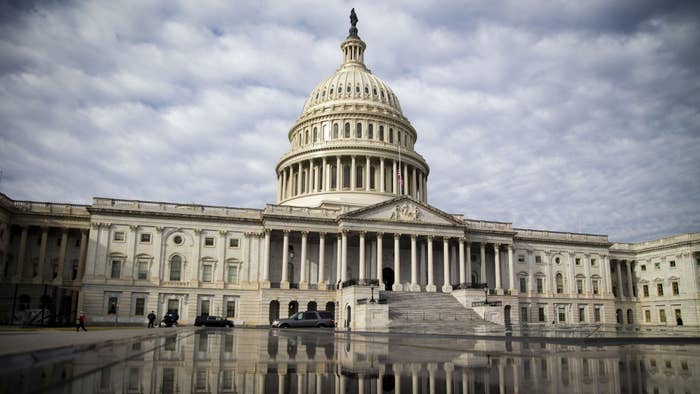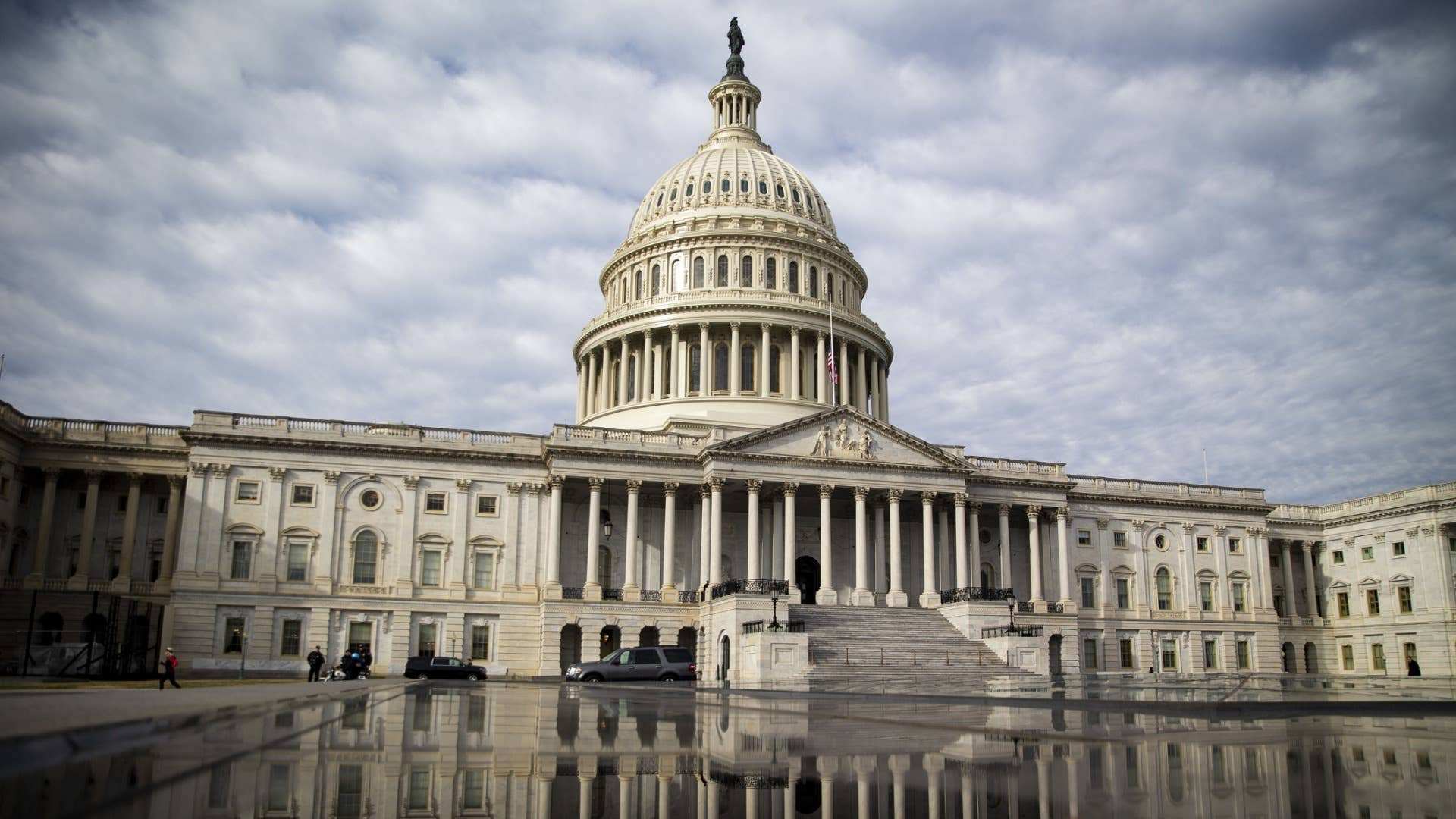
To add even more fuel to the blazing trash fire that is 2020, we now have to worry about the Senate fucking us all over by failing to prohibit warrantless surveillance of internet search and browsing records in connection with the Patriot Act.
Earlier this month, Senators Ron Wyden (a Democrat repping Oregon) and Steve Daines (a Republican repping Montana) failed by a single vote to pass a rule that would have prohibited such privacy-threatening activity. The Senate at large, meanwhile, voted to reauthorize the USA Freedom Act, which puts back in place government abilities that expired back in March with Section 215 of the still-troubling Patriot Act.
Now, the House must approve the amended version of the USA Freedom Reauthorization Act before it hits Trump's office.
And while a separate amendment aiming to boost the involvement of outside legal officials in hearings conducted by the wildly controversial Foreign Intelligence Surveillance Act (FISA) court proved successful, privacy advocacy groups are still understandably sounding the alarm about the missed opportunity for protection against web surveillance by way of Sen. Wyden and Sen. Daines' failed proposal.
Wait. What?
The Senate passed the USA Freedom Reauthorization Act of 2020 by an 80-16 vote in May, a move that notably occurred two months after the House approved the bill in a previous form. As the bill heads back to the House amid the possibility of additional changes, the Justice Department has already expressed its unenthusiastic feelings toward the current iteration of the legislation, with spokesperson Marc Raimondi saying in a statement that the aforementioned amendment will "unacceptably degrade our ability to conduct surveillance of terrorists, spies, and other national security threats."
Privacy advocates, however, passionately disagree with this take. In fact, much emphasis has been placed on the lack of changes in the language similar to those proposed by Sen. Wyden and Sen. Daines, as mentioned earlier in this article.
What does this mean for me?
As Rep. Zoe Lofgren of California—who minced no words when addressing the shortcomings of the bill's language regarding the government’s ability to potentially mine one's web history—explained, perhaps multiple additional amendments are needed to ensure the protection of Americans' right to privacy. It is now the responsibility of the House, Rep. Lofgren said, to "curb this violation of Americans' rights."
Sen. Wyden spoke in a similarly definitive tone, going so far as to note that the legislation in its current form effectively hands the government powers that are particularly troubling in our internet-driven era, even for everyday people:
The legislation hands the government power for warrantless collection of Americans’ web browsing and internet searches, as well as other private information, without having to demonstrate that those Americans have done anything wrong, or even were in contact with anyone suspected of wrongdoing. Without further reform of these vague and dangerous Patriot Act authorities, Congress is inviting more secret interpretations of the law and more abuses.
Who's against it?
In addition to political leaders, including those quoted above, several social justice advocacy groups have stepped forward to express their firm disapproval of the legislation. In fact, more than 50 such groups got together to pen a letter to the House, seeking a warrant requirement before the FBI, for example, could take a look at Americans' browsing histories.
"This reform is precisely designed to stave off the kind of scandals that led to a dramatic loss of trust in United States intelligence agencies over the past two decades," the letter—backed by the American Civil Liberties Union, Fight for the Future, and more—states. "Indeed, this would help address serious concerns among the public that civil liberties are at heightened risk during this time of crisis. This is an acute concern for the many groups that the FBI has wrongfully targeted in the past, including activists, communities of color, and the press."
Read the full letter here.
What can I do?
First and foremost, stay at least somewhat informed on the world around you. Though it's easy—particularly during the exhausting COVID-19 news cycle—to stay effectively "checked out" from what's going on, stay diligent about matters of government. And as the previously cited letter from more than 50 advocacy groups makes clear, the support among the general public for a more fair and balanced approach to the surveillance bill is strong. But don't assume the political leaders representing you know that, or even care to put that knowledge to good use.
In addition to voicing your concerns to those leaders' respective offices, you can also help groups like the ACLU and others by raising awareness (and pushing political leaders) as part of a larger and more united effort at achieving continued victories when it comes to privacy.

